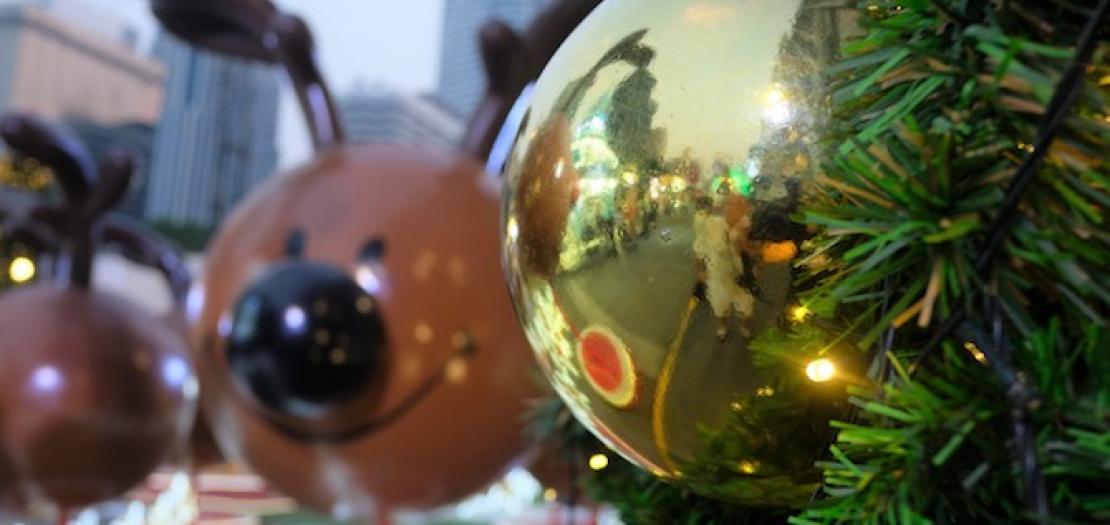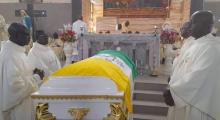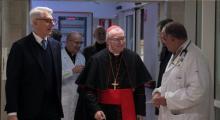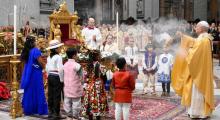Issued by the Catholic Center for Studies and Media - Jordan. Editor-in-chief Fr. Rif'at Bader - موقع أبونا abouna.org

Although most Thais understand little about Christianity, Buddhism teaches them to respect all religions.
When Pope Francis arrives in Bangkok on November 20 for his visit to Thailand, he might be pleased to see much of the predominantly Buddhist nation’s capital swathed in a cheerful veneer of the Christmas spirit.
The Christian holiday is still several weeks away, yet Christmas trees have already started sprouting up inside stores and outside malls around Bangkok.
Yuletide decorations, complete with wreaths and pine cones, are appearing in shop windows. Even at the city’s numerous Starbucks outlets coffee now comes in red cups featuring a Christmas theme. Festive songs like “Jingle Bells” are being played on department store sound systems.
Yet appearances can be deceptive. Despite Thais Buddhists’ penchant for Christmas, the holiday is celebrated here simply as a feel-good festival with no religious undertones. It’s the commercial aspect of Christmas that dominates, not its spiritual message.
In fact, most Thais know little about the religious meaning of Christmas. They also understand little about Christianity, routinely confusing Santa Claus, whose image becomes ubiquitous every December, with Jesus Christ, who is far less prominently displayed.
Pope Francis’ visit to Thailand might help bring Christian practices and beliefs into sharper focus.
Despite the centuries-long presence of Christianity in the Southeast Asian nation, believers of the faith account for barely more than one per cent of the population. Catholics number fewer than 400,000, representing 0.58 percent of the population in a country of 69 million. They belong to 11 dioceses.
The Vatican’s efforts for an organized mission in Thailand began in 1659 when Propaganda Fide wanted a missionary group to take up evangelization work that Padroado had started four decades earlier. In 1663, Missions Etrangeres de Paris was formed to actualize a mission directly under the Vatican.
Although Christians have long been free to worship and proselytize in Thailand, the religion has had relatively little success in gaining new adherents in the mountainous north where missionaries converted animist tribes people in decades past.
Pope Francis is scheduled to meet both the Supreme Buddhist Patriarch at Wat Ratchabophit and His Majesty King Vajiralongkorn, who is treated as semi-divine in a country where the monarchy occupies a central role.
“Buddhism teaches us that we need to respect all religions,” says Phra Sompas Thammananto, a Buddhist monk who lives at a monastery in Bangkok.
“Your beliefs matter much less than your good deeds.”
Ultimately, Pope Francis will be visiting Thailand, at least in part, not in order to try and entice local Buddhists into embracing Christianity but to help fortify local Catholics in their faith.
In May, Pope Francis wrote to the Thai Church to congratulate it on the 350th anniversary of its official founding in the Buddhist nation.
“I pray that you may grow in holiness and continue to work in the spread of Christ’s kingdom by fostering solidarity, fraternity and the desire for goodness, truth and justice in your beloved country,” the Pope wrote.






